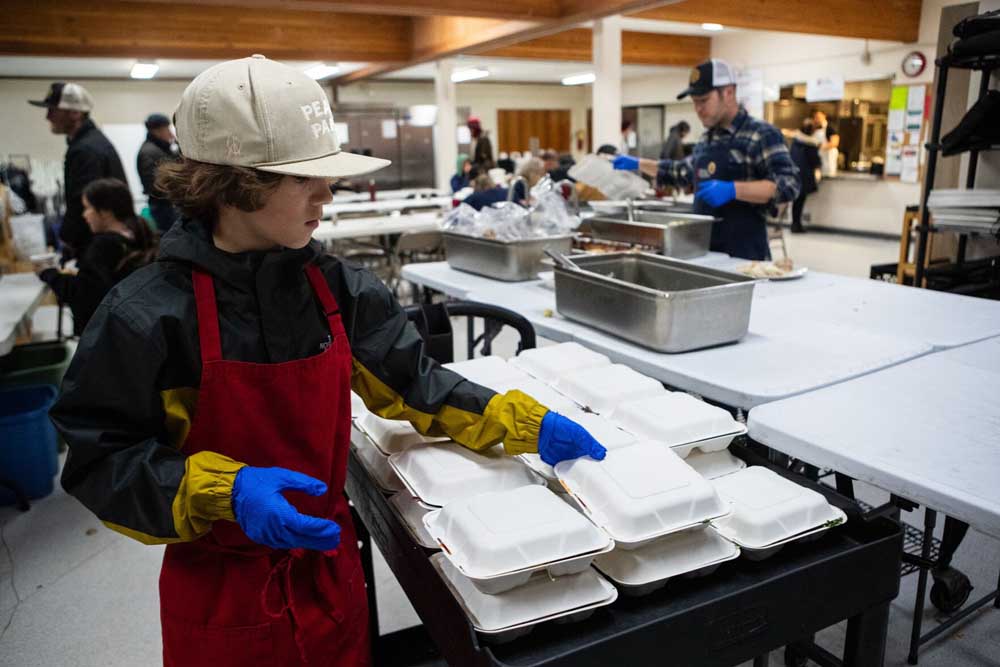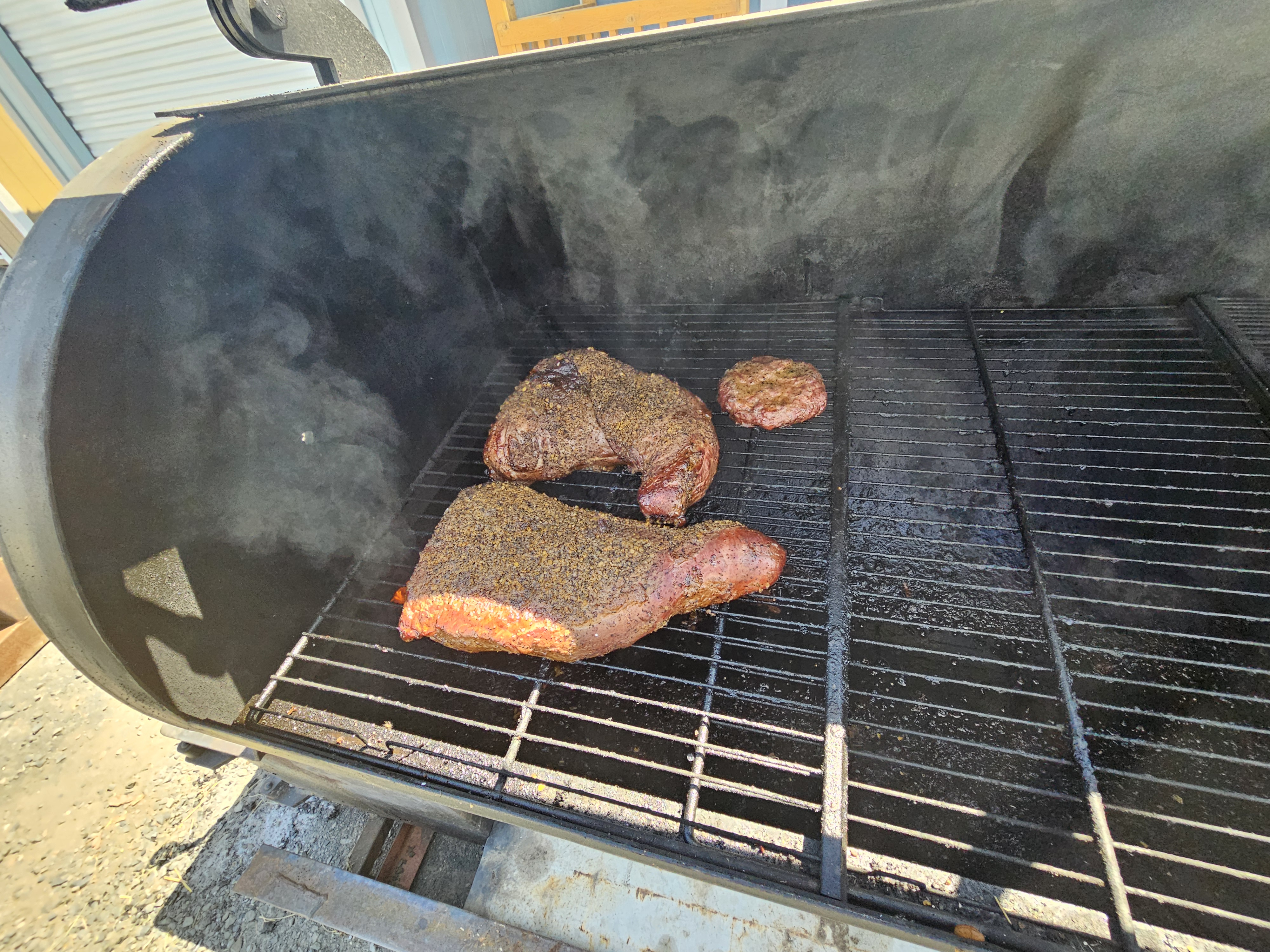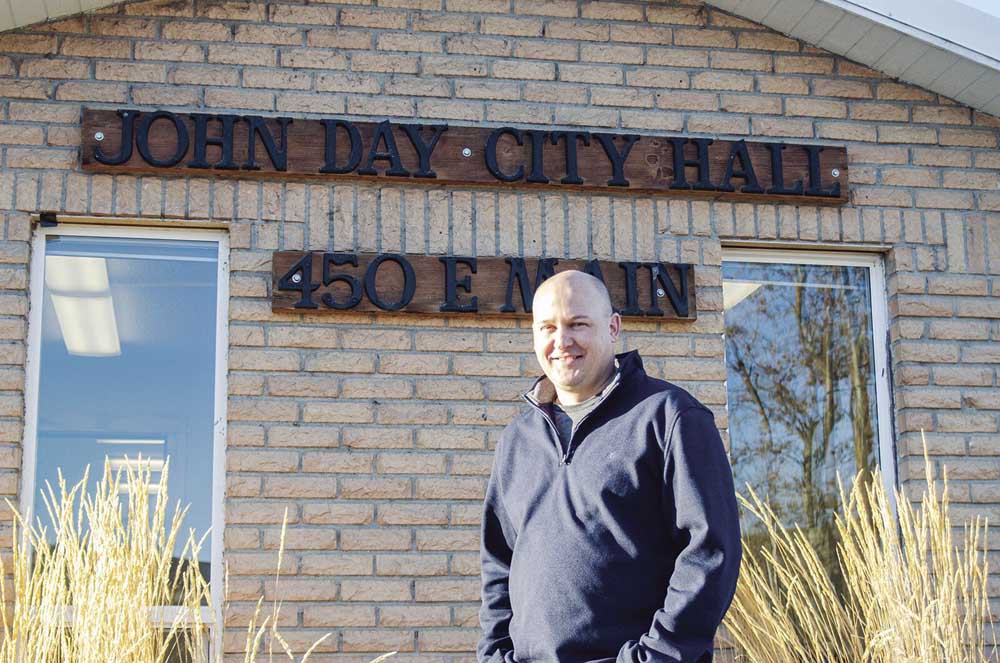Homelessness makes being hungry even harder, and there aren’t enough resources
Published 9:00 am Saturday, December 30, 2023

- Spencer Seabourne, 11, prepares and stacks take-away meals with his dad, Mark Seabourne, while volunteering during a meal at Family Kitchen in Bend in November.
BEND — Every day, T. Nixon seeks whatever food he can find in Bend, and not just because he’s hungry.
Nixon has lupus, an incurable disease in which the immune system attacks its own tissue. Left untreated, it can be serious, sometimes causing severe kidney damage. Nixon’s medication, which he keeps loose in his pockets, must be taken with food, or risk severe stomach problems.
But Nixon, who is homeless, has no place to store food at the shelter where he’s staying on Second Street in Bend, which provides most of his daily meals. He thinks about his favorite soul food back home in North Carolina, but here, his food stamps don’t afford him much, maybe $60 he spends mostly on TV dinners.
“I just want a real meal, something that’ll fill me up,” said Nixon, 33.
Nixon’s daily struggle highlights what unfolds every day across Central Oregon, according to outreach workers, advocates and people experiencing homelessness.
Homelessness makes hunger extra challenging
As the region reports a rise in homelessness amid surging housing prices, its hundreds of unhoused residents are facing greater challenges than ever before in finding consistent, nutritious meals.
They must make critical decisions around what they can afford, often choosing between paying for basic nutrition and fuel to heat whatever shelter they have. Some struggle to find transportation and show up on time for meals at local shelters or community kitchens, all the more challenging if they’re ill, injured or caught in bad weather. Others do not own kitchen appliances and, if they do, cannot wash them.
Many have practically no way to store what food they have and cannot navigate their dietary restrictions, forced to make do with whatever is available. That means they must often depend on nonperishable foods — dried fruit, canned soup, instant ramen — rather than nutritious, warm meals and fresh fruits and vegetables.
“It’s hard to get food stamps, and you don’t know where to get nice, warm food,” said Rayling Garcia, who is 50 and homeless.
Garcia is a year sober from a methamphetamine addiction that left her bound to her tent, crying, unable to get up and find food. “When you’re using, you don’t want food, you just want more drugs,” said Garcia.
Now, she catches the bus every day from her shelter in Redmond to get meals from Shepherd’s House Ministries in Bend.
“If you ask, you can get help,” she said. “It doesn’t matter if it’s a sandwich or a chicken bone.”
Meanwhile, the struggle for ample nutrition can make it harder to attend housing appointments, substance abuse treatment, court appearances and many other things that may lead someone to homelessness.
“Food becomes the focus of their entire schedule,” said Gary Hewitt, the executive director for St. Vincent de Paul Bend.
Some advocates say things have only gotten worse for some homeless people as authorities have swept encampments again and again over the past year, leaving people scattered across town and sometimes living in areas like China Hat Road and Juniper Ridge, far from local shelters and kitchens serving meals.
“It seems that people are finding it much more difficult to have their basic needs met,” said Eric Garrity, of the Bend Equity Project.
“It’s not getting better. It’s getting worse. It’s up to the community to solve it. There’s no reason a person should go hungry in this town.”
— Gary Hewitt, executive director of St. Vincent de Paul Bend
Garrity travels weekly to provide meals in Juniper Ridge, a 1,500-acre area of publicly-owned land on the northeast outskirts of Bend. He said many people lost their jobs and homes during the pandemic economic downturn and have since found it harder to afford consistent meals.
With winter now here, Garrity said he is especially concerned for the people who were swept.
“It’s a hard time of year to be further away from town,” he said.
Tim Ellis, who works for Shepherd’s House Ministries, also provides weekly outreach services in the Juniper Ridge area, often bringing cold soup, ramen and other canned goods to people who need them.
Ellis said some people he helps work full-time jobs but can’t store food well because they don’t have an apartment or house due to high housing costs.
“There seems to be an idea that it’s a simple fix, that it’s something that can be dealt with by a person going to work,” said Ellis. “That’s simply not true.”
Shelters help, but people need more
John Lodise, director of low-barrier service for Shepherd’s House Ministries, said it offers as many as 300 meals a day at its shelters in Bend and Redmond. But ensuring residents have ample food while keeping the shelters full is a challenge.
Health rules and concerns over infestation and sanitation mean that shelter employees cannot allow people to bring in their own food. In addition, refrigeration space is limited. This requires staff to tell residents that whatever food they bring into a shelter they must eat in a day.
But Lodise said it’s essential that people get consistent access to food for reasons that go beyond health. Food, he said, can be empowering.
“That’s a source of connection to the rest of society,” he said.
Hewitt said staff members used to provide a handful of sack lunches a day, but now provide 50. Often, they give out peanut butter and jelly sandwiches, dried fruits and meats, protein bars and other foods that don’t necessarily require utensils.
Hewitt said a potential solution could be providing additional pop-up pantries, where people load trucks with nearly expired foods, drive them out to people and hand them out. He said resources like these are even more essential during the holiday season, when some facilities offering food may close.
“It’s not getting better. It’s getting worse. It’s up to the community to solve it,” Hewitt said of food insecurity. He added, “There’s no reason a person should go hungry in this town.”
On Thursday, Nixon looked in the refrigerator at the Lighthouse Navigation Center, a shelter, and finally found the food he needed to take his medication. It was a plastic package of sushi, recently donated. He placed his food on a plate, doused it in soy sauce and walked outside to talk to his wife. He ate while standing by the entry to a Walgreens parking lot, smiling and laughing.
He set his food down. Moments later, a car entering the parking lot crossed over the sidewalk and drove over his food. It wasn’t clear if it was intentional or an accident, but Nixon looked stunned, angry.
“I wanna fight them,” he said, biting his lip, staring.
Series: Hunger in Central Oregon
One in 5 residents of Central Oregon is hungry too often. Civic leaders, organizations and volunteers fighting to solve the problem say hunger goes deeper than most people are aware. The Bulletin is shining a light on the situation and the community’s efforts to address it.
• Hunger in Central Oregon: Food security is more than subsistence: the changing reality of hunger
• Food banks: Myriad options in Central Oregon for donating to food banks
• Helping seniors: From prison with love: Deer Ridge inmates cook meals for Madras seniors
• Growing up hungry: How is Central Oregon helping its hungry children?
• Finding comfort with food: Neighbor of Bend senior center finds solace in baking
Series: Hunger in Central Oregon
One in 5 residents of Central Oregon is hungry too often. Civic leaders, organizations and volunteers fighting to solve the problem say hunger goes deeper than most people are aware. The Bulletin is shining a light on the situation and the community’s efforts to address it. Previously published stories in the series are:
Dec. 19
• Hunger in Central Oregon: Food security is more than subsistence: the changing reality of hunger
• Food banks: Myriad options in Central Oregon for donating to food banks
Dec. 20
• Helping seniors: From prison with love: Deer Ridge inmates cook meals for Madras seniors
Dec. 21
• Growing up hungry: How is Central Oregon helping its hungry children?
Dec. 22
• Finding comfort with food: Neighbor of Bend senior center finds solace in baking
Dec. 23
Helping others: In the face of insults and threats, Prineville woman vows to feed the needy
Dec. 26
PHOTOS: See how food goes from Central Oregon’s leading food bank to residents
Dec. 27
Hunters help the hungry: Central Oregon food banks accept donated game meat from hunters
What can you do if you suspect someone doesn’t have enough food?
The food pantries in Central Oregon all are low-barrier, meaning no paperwork is required to prove need. Anyone can go to a food pantry and shop for free food and can even get food for others. The only information required is name, ZIP code, number of people living in the home and a signature. Go to https://www.neighborimpact.org/providers/ for a list of food pantries in Central Oregon. The website can filter information by language and geography.




